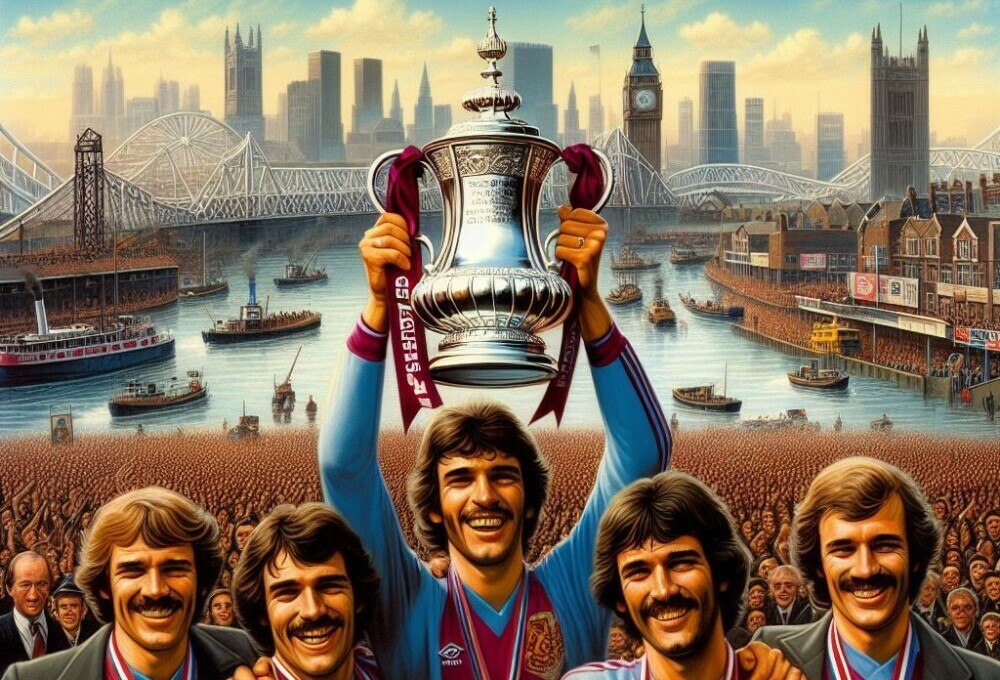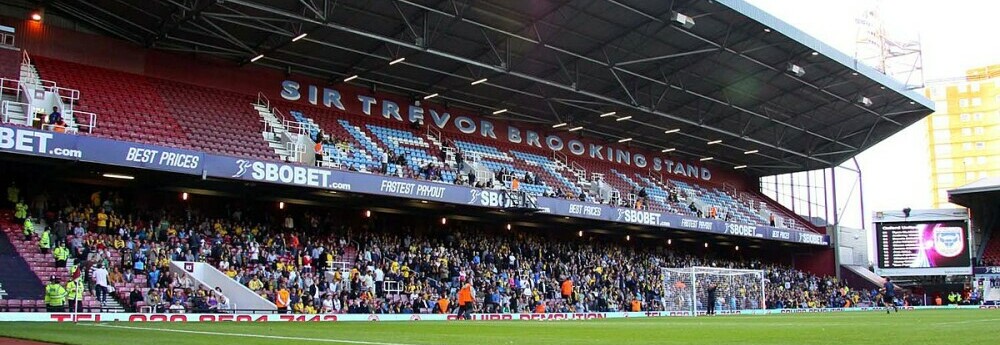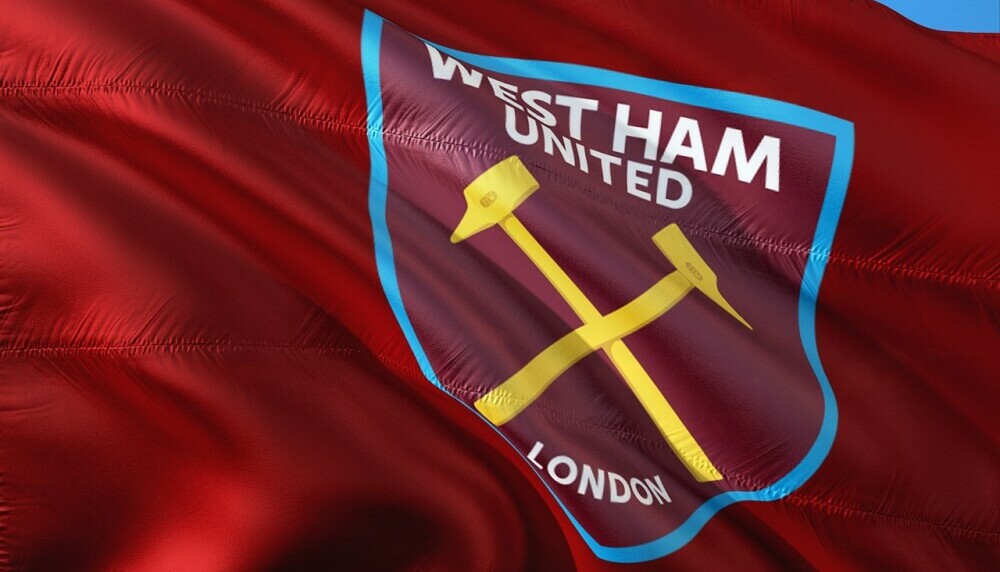
Ladies and Gentlemen, let me introduce to you the 1980 FA Cup Winners… West Ham United.
All hail the happy Hammers with their third win overall. Are you ready?
Then let me take you back to the morning of Saturday 10 May 1980. Imagine being up since eight thirty, on a Saturday?! Imagine having been sitting in front of the TV since nine o’clock when Cup Final Grandstand had started; the anticipation buzzing through you as second division West Ham United and Arsenal, of Division One, prepared to face off in the FA Cup final. Heaven for the ten-year-old me.
I think my first proper memory of the FA Cup final had been the 1977, debacle as it turned out, between Liverpool and Manchester United. Next was 1978’s slow torture for Arsenal as they lost to Roger Osborne’s seventy-seventh-minute goal for underdogs Ipswich Town to win.
Then, in 1979, we had the incredible game five-minute ending between Arsenal and Manchester United. With 86 minutes played, Arsenal was two up and the cup was theirs. Then Gordon McQueen pulled one back before Sammy McIlroy made it 2-2. Extra time?
You bet… unless you had missed Liam Brady’s stealth-like foray into the United half before he released Graham Rix on the Arsenal left. Rix’s ball across the penalty box was met by Alan Sunderland and that was that.
But anyway, back to 10 May 1980. Little did we know at kick-off, that, by the time the medals were handed out, and the cup held aloft by Billy Bonds in those moments around five o’clock, that Trevor Brooking, would turn out to be the man of the hour.
The game was just thirteen minutes old when Brooking, with a calculated stoop of his head, diverted Stuart Pearson’s shot-come-cross into the net. With the goal scored so early in the game, mere minutes on the clock, the big question was, “Would the Hammers hang on?” Well, of course, they did, and, in fact, had the better chances. Not least was Paul Allen’s late burst towards the Arsenal goal that was only stopped by a cynical foul from Willie Young.

Arsenal, on the other side, probably felt a sense of déjà vu, finding themselves in an all too familiar position. This was their third final in a row, but the aggregate score was 4-3 against them. There was, perhaps for the neutral, a pleasing symmetry. A goal 77 minutes into the 1978 and a goal 13 minutes into the 1980 final. But ultimately, the only symmetry that mattered was their record of lose-win-lose.
In the previous chapter of this season’s FA Cup narrative, Arsenal had endured a semi-final that tested every ounce of their endurance: four matches against Liverpool, culminating in a hard-fought 1-0 win in their third replay at Highfield Road. The Hammers, in contrast, had sealed their final berth after just a single replay against Everton.
The Road to Wembley: Arsenal and West Ham’s Semi-Final Battles
Arsenal’s journey to the 1980 FA Cup final was no casual stroll through the park. Clashing with Liverpool, a formidable opponent, the Gunners faced a gruelling series of matches that truly tested their mettle. The teams were so evenly matched that it took four intense games to decide who would head to Wembley. The series showcased Arsenal’s resilience, but it also begged the question: what toll did these hard-fought battles take on the players’ stamina and morale?
The semi-final saga began with a 0-0 draw at Hillsborough, followed by two 1-1 draws, both at Villa Park. In the second replay, Kenny Dalglish answered Alan Sunderland’s first-minute opener with seconds remaining. Fans were hooked as each match seemed to raise the stakes higher. It wasn’t until the third replay at Coventry’s Highfield Road that Arsenal broke the deadlock when Brian Talbot, a scorer in the 1979 final, notched the only goal after 11 minutes.
This exhausting run could have sapped the strength of any team, but Arsenal appeared determined, driven by the ghost of their near-miss against Ipswich in 1978 and the sheer ecstasy of Alan Sunderland’s last-gasp winner over Manchester United in 1979.
West Ham United’s path, while not as long and drawn out, was still no walk in the park. The Hammers faced Everton and managed to settle their semi-final engagement with just a single replay. Taking place at Leeds United’s Elland Road, the replay allowed West Ham to display their dogged determination – they won 2-1 after extra time, with all goals coming in the extra period. Alan Devonshire opened the scoring before Bob Latchford levelled. Frank Lampard Sr. scored the winner in the 119th minute.
It’s said that to lose in a semi-final is worse than losing in the final, but I’m not sure that Arsenal would agree on that score. FA Cups are won with willpower and strategic acumen, and no small amount of good fortune. But as they say, “You make your own luck.”
This year it seemed that the semi-finals, which after all, are mere preludes to the main event, instead took centre stage. Both offered a gripping narrative, foreshadowing the drama that the final would serve. Both semi-final encounters were dour, low-scoring affairs – in many ways, setting the tone for a final which despite that remains part of FA Cup folklore.
When Giants Fell: The Upsets Before the Final
We can’t discuss the 1979-80 FA Cup without talking about the shocks that stole the headlines in the earlier rounds. The third round brought us three proper upsets. Halifax Town, a relatively obscure club compared to top-flight giants, toppled First Division Manchester City.
Although not quite as storied or illustrious as their neighbours, this was Manchester City, giants by any stretch. The significance of this victory cannot be overstated as it highlighted the true romance of the cup and especially the third round.
Then we had two acts of non-League teams defeating teams from the Second Division. Harlow Town defeated Leicester City. After a 1-1 draw at Filbert Street, the Foxes were hunted down in the replay by a score of 1-0. Then, Wigan, who have since played in the Premier League and have won the FA Cup themselves, scored a famous victory over Chelsea at Stamford Bridge.
And finally, on third round shocks, another team from the Second Division, Newcastle United was humbled at St James’ Park by third division Chester. In their 2-0 victory, one of the Chester goal scorers was a lad by the name of Ian Rush.
Moments like these serve only to underline the “Magic of the Cup”. Any team, no matter how small, could dream big. These early round shocks set the stage for the rest of the competition and fuelled stories that fans would recount for years.
These stunning outcomes provided more than just headlines; they provided invaluable lessons about preparation and the dangers of underestimating opponents. It’s just that the FA Cup, especially in January, does throw up its share of intrigue, with such lessons perhaps not necessarily that readily assimilated.
The Legacy of the 1979-80 FA Cup Season
The 1979-80 FA Cup season was not just about the final, or rather it was just about the final. West Ham’s victory placed Trevor Brooking’s name firmly in the annals of football history, marking a storied moment for both the player and the club. This chapter is a reminder of his impact on the tournament and the lasting mark he left on West Ham United. And, of course, West Ham themselves, were a second-division team defeating a first-division behemoth in Arsenal.

Moreover, the upsets and giant killings of the season reiterate the unpredictability of football, a trait that continues to endear fans to this day – however much money irons out these potential banana skins. The stories of Halifax Town, Wigan Athletic, and Harlow Town remain emblematic of the David versus Goliath narrative that will always live in the FA Cup.
